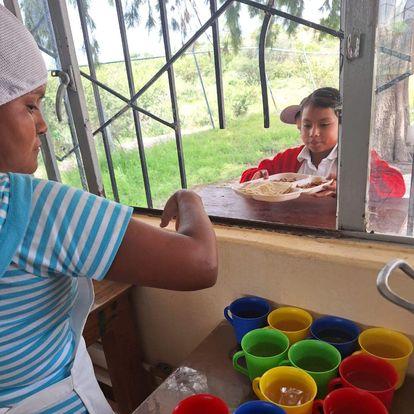
As a proud member of the United Nations, Mexico has committed itself to the ambitious agenda of the 2030 Sustainable Development Goals (SDGs). These goals, established in 2015, aim to tackle some of the most pressing global challenges, including poverty, inequality, and environmental degradation. Among them, Goal 2—Zero Hunger—stands out as a critical target for ensuring that all people have access to sufficient and nutritious food year-round.
Despite Mexico’s commitment, recent assessments indicate that the country is projected to miss the Zero Hunger goal by a concerning eight percent. This shortfall raises important questions about the underlying factors contributing to food insecurity and the challenges that lie ahead.
Understanding the Zero Hunger Goal
Goal 2 aims to end hunger, achieve food security and improved nutrition, and promote sustainable agriculture. It focuses on ensuring that all individuals, particularly the most vulnerable—children, pregnant women, and the elderly—have access to safe, nutritious, and sufficient food. Achieving this goal is vital for fostering healthy communities and driving economic growth.
Current State of Food Insecurity in Mexico
Mexico faces significant hurdles in its pursuit of Zero Hunger. As of recent reports, around 28 million Mexicans experience food insecurity, meaning they lack reliable access to sufficient food (FAO, 2021). This situation is exacerbated by several factors:
1. Economic Disparities: The gap between the wealthy and the poor continues to widen in Mexico. Many rural communities lack access to economic opportunities and resources, making it difficult for families to afford nutritious food (OECD, 2020).
2. Climate Change: Mexico is vulnerable to climate-related challenges such as droughts and floods, which can devastate agricultural production. These environmental factors not only threaten food supply but also impact the livelihoods of farmers, further exacerbating food insecurity (IPCC, 2019).
3. COVID-19 Pandemic: The recent pandemic has had a lasting impact on Mexico’s economy and food systems. Job losses and disruptions to supply chains have made it more difficult for families to access food, with many people falling into poverty (UNDP, 2021).
4. Malnutrition: Even when food is available, it is not always nutritious. Mexico faces a dual burden of malnutrition, where both undernutrition and obesity coexist. This paradox complicates efforts to achieve food security and necessitates a focus on the quality of food as well as its availability (WHO, 2020).
The Path Forward
While the challenges are daunting, there is hope. Mexico has a vibrant civil society, including organizations like Feed the Hungry San Miguel, that are actively working to address food insecurity and promote sustainable agricultural practices. Collaborative efforts between the government, non-profits, and local communities can help mobilize resources and implement effective solutions.
To ensure that Mexico meets the Zero Hunger goal by 2030, it is essential to:
- Strengthen social protection programs that provide food assistance to vulnerable populations.
- Promote education and awareness about nutrition to improve food choices in communities.
- Invest in sustainable agriculture practices that enhance food production while protecting the environment.
- Enhance collaboration between stakeholders to create a more resilient food system.
As Mexico approaches the 2030 deadline for the Sustainable Development Goals, the urgency to address food insecurity and work towards Zero Hunger has never been more critical. By understanding the challenges and reinforcing collective action, Mexico can strive to meet this essential goal, ensuring that all its citizens have the opportunity to lead healthy and fulfilling lives. Together, with the support of organizations like Feed the Hungry, we can turn the tide on hunger and create a brighter future for all.
Sources
- Food and Agriculture Organization (FAO). (2021). “State of Food Security and Nutrition in the World 2021.”
- Organization for Economic Co-operation and Development (OECD). (2020). “Economic Surveys: Mexico 2020.”
- Intergovernmental Panel on Climate Change (IPCC). (2019). “Climate Change and Land.”
- United Nations Development Programme (UNDP). (2021). “Impact of the COVID-19 Pandemic on Food Security in Mexico.”
- World Health Organization (WHO). (2020). “Mexico: Nutrition Profile.”


